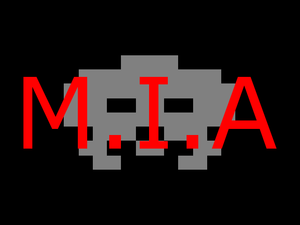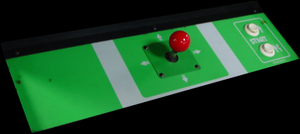Lost In Translation/Nibbler
| Nibbler | |
|---|---|
| Manufacturer | Rock-Ola |
| Released | 1982 |
| Control Method |
8-way Joystick |
| Main CPU | M6502 (@ 930.000 kHz) |
| Sound CPU | Mono Custom SN76477 |
| Video Details |
Raster (Vertical) 256 x 224 pixels 61.25 Hz 64 Palette colours |
| Screens | 1 |
| ROM Info | 16 ROMs 51,264 bytes (50.06 KiB) |
| MAME ID | nibbler · nibblera · nibblerb · nibblero |
About The Game
Nibbler is a maze-based arcade video game.
You control Nibbler the snake to eat food around the maze. With each food you eat, Nibbler gets bigger. Complete each level by eating all the food on the screen. You lose a life if Nibbler hits his own body.
Trivia
This is the first game to support a billion point score.
Rock-ola offered a free Nibbler machine to the first player to turn the game over by scoring a billion points. The early favorite was Tom Asaki, who came close but failed in attempts at Twin Galaxies arcade in Ottumwa IA (once when the joystick broke after he scored 793 million points). Tim McVey finally broke the billion-point barrier (he holds the official record for this game with 1,000,042,270 points) after six unsuccessful attempts (he passed out after one of them) and January 28, 1984, was declared Tim McVey day in Ottumwa!
Scoring
- Food Item : 10 points x level.
- Time Bonus : 10 points per remaing on clock x level.
Tips and tricks
- Nibbler does pause for a split-second when it hits a corner, so use this pause to decide your next turn.
- Try to collect the items on the inside of the maze first, as you can use the outer edges to move relatively safely when Nibbler is longer.
Staff
- Designed & Programmed By
- Lonnie Ropp
Cabinet and Artwork
Ports
- Computers
- Amstrad CPC (1984)
- Apple II







